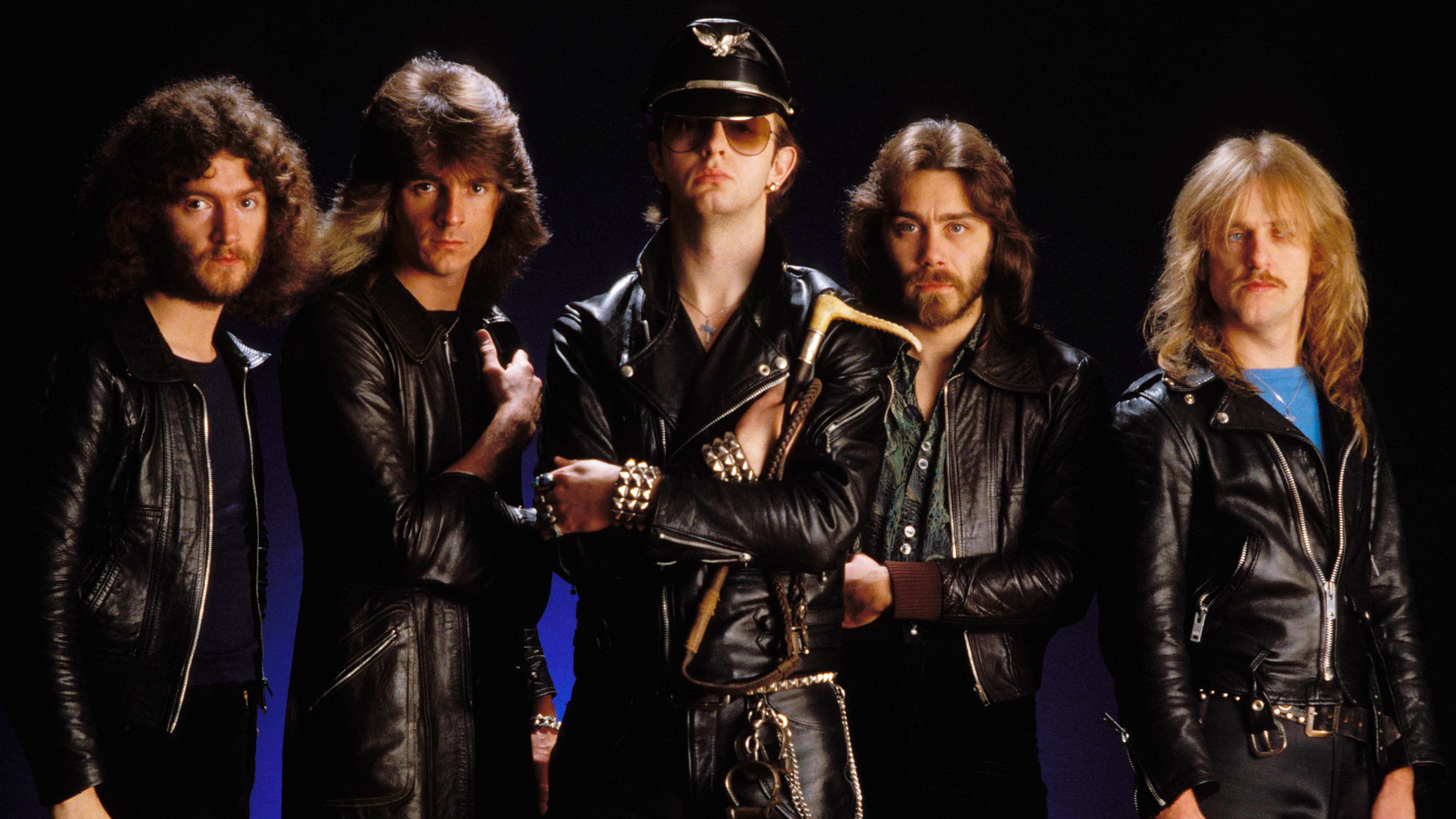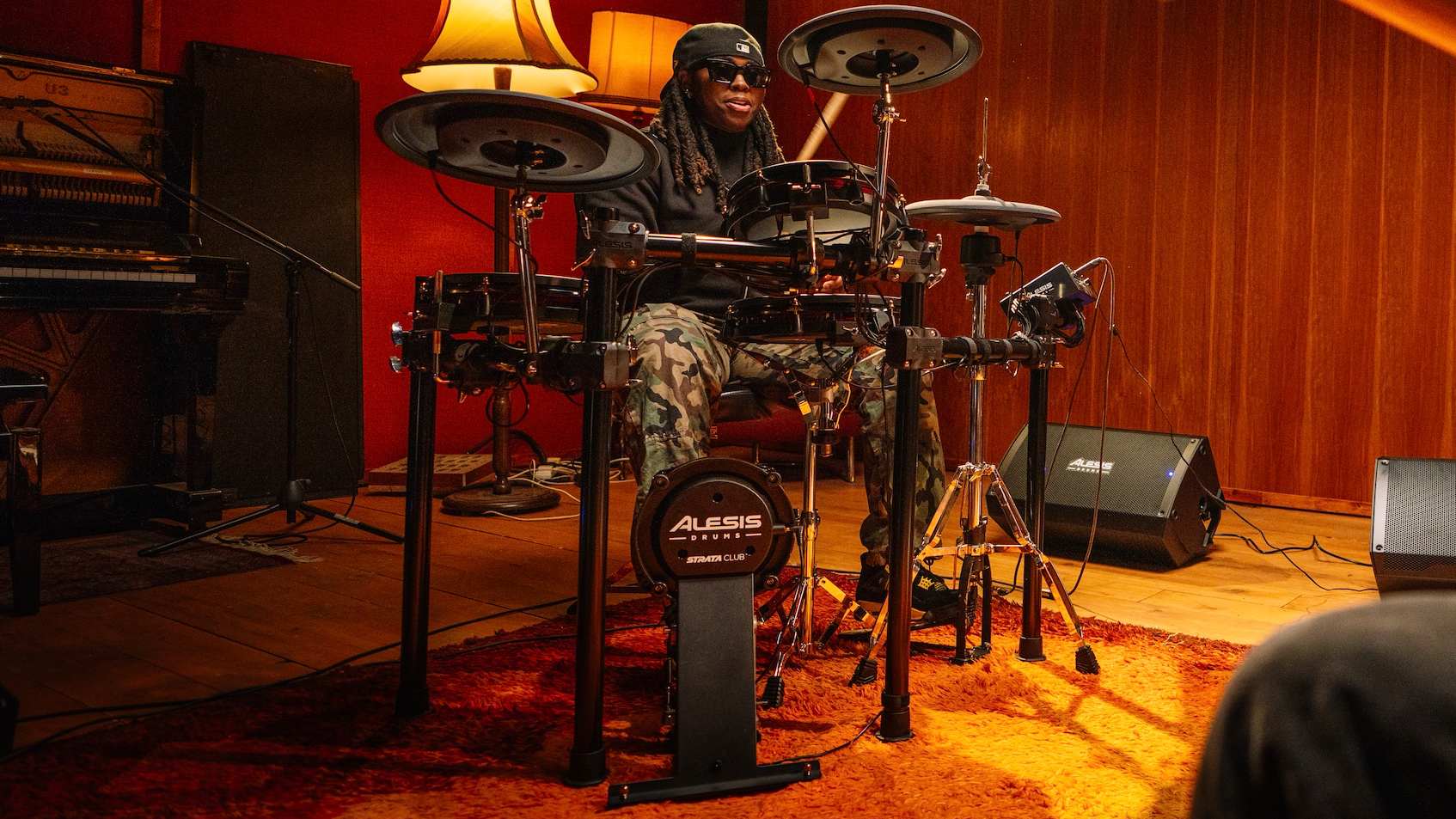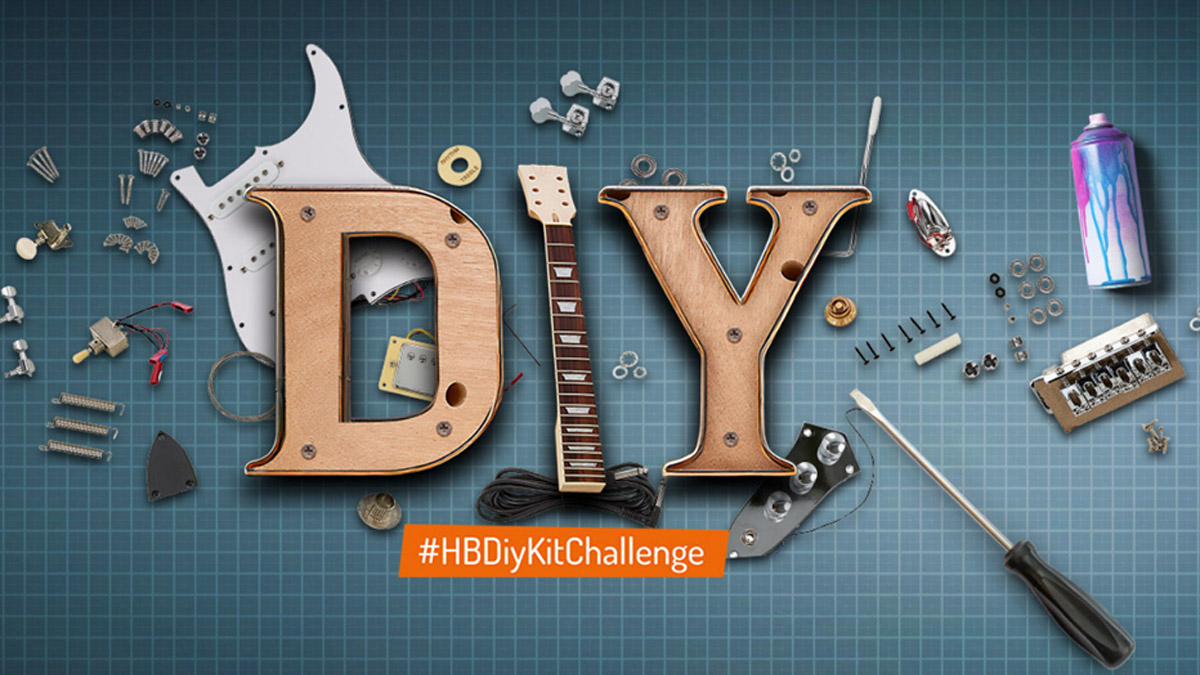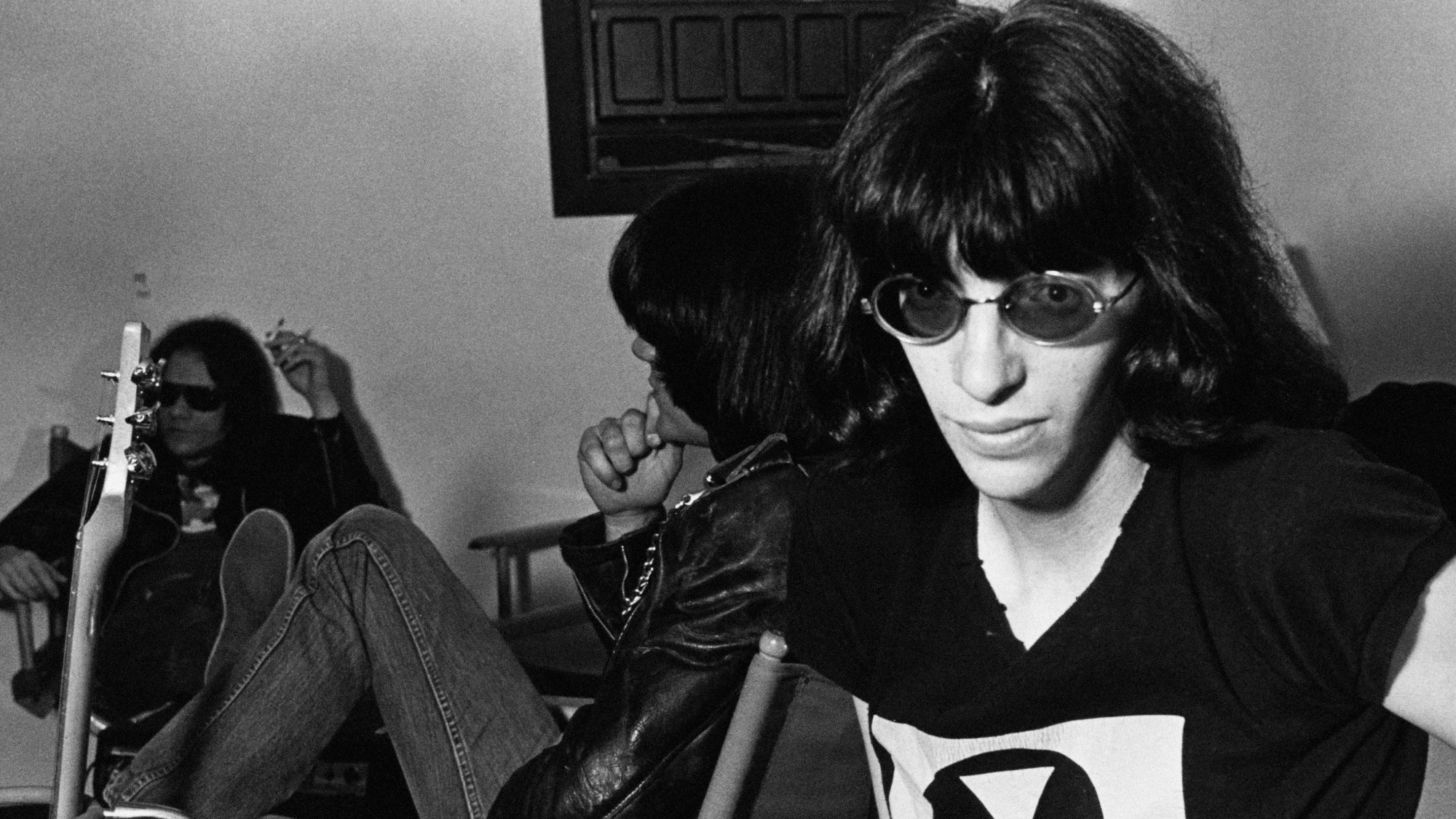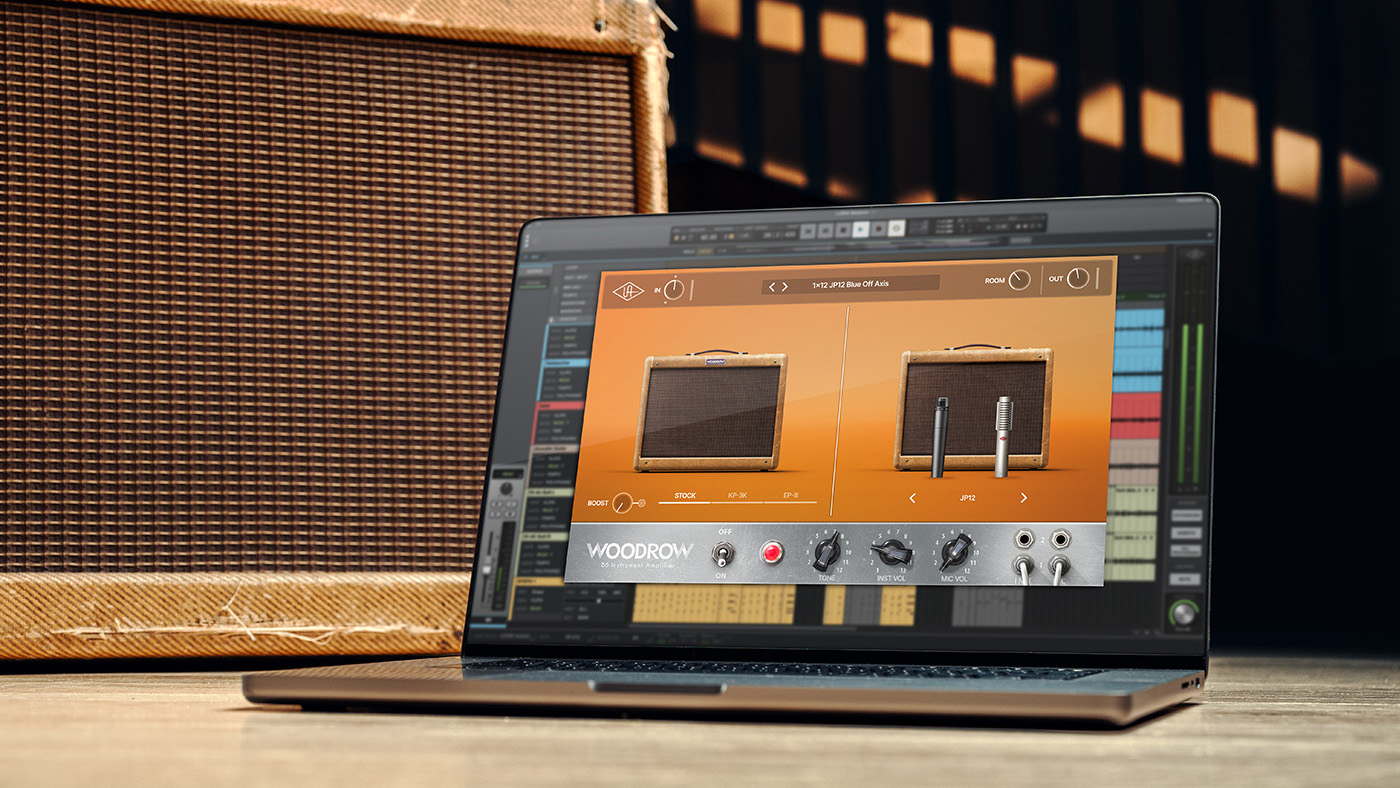Foo Fighters' Nate Mendel on his signature Fender P-Bass...
... and being the Foo Fighters' "anchor"

BASS EXPO 2013: Aside from Dave Grohl, Nate Mendel is the longest serving and only constant member of Foo Fighters, having joined the band in 1995. In the second and final instalment of our interview with the US bassist, we discuss his reputation as the Foo Fighters 'anchor', his current tour rig and find out all about the design, spec and history of his signature Fender P-Bass.
Read part one of our Nate Mendel (Foo Fighters) interview
"I've always seen myself as a band guy, a role-player. I want the band to succeed."
Since One By One you've developed a reputation as the band's anchor, in character and musicality. Is that a fair assessment?
"Well, I can't say that because the band's anchor is, of course, Dave because it's so much his creation, but just personality-wise, umm, yeah. I think that bass players often take that role. If you're going to play bass, you're not going to want to be the songwriter in a band, probably, or the flashiest person out there. I've always seen myself as a band guy, a role-player. I want the band to succeed. I want to have fun making music with my friends and put out records and go on tour. I don't want to be seen as the virtuoso of the band, or the leader, or anything like that.
"Once you take those kind of aspirations off the table, it's a lot easier to be a person that's a peace-maker in the band - and not someone that has the potential to create strife. So playing the instrument that I do, having a more low-key personality and having been there from the start, I think all of those things contribute to being the 'anchor'.
"I think now, musically, I fulfil that role a lot better - of being the anchor - because I work hard to be a more solid player. Now I've figured out how to play within the song, instead of around it, I can anchor the music a little bit more effectively, too."
Foo Fighters - This Is A Call (Live on Letterman in 2011)
Get the MusicRadar Newsletter
Want all the hottest music and gear news, reviews, deals, features and more, direct to your inbox? Sign up here.
Has that become more important now that Foos play with three guitarists. Has that line-up change affected the way you write bass parts?
"Not really, honestly. If you've got two guitar players and you add a third that's not as big a shift as going from one to two. A third will be more textural. It just reinforces what my job is live. I'm the only person that wears in-ears, because I feel with the type of venues that we're playing - these hockey arenas with bellowing acoustics - the stage volumes that we play with and the ferocity of the players in my band, I feel like it's really important to keep one element as tight as possible. I've got Taylor there and I'm just trying to make sure that we're as locked-in as possible, so there's that real exciting pulse and the guitar players can be as ferocious as they want and not have to worry about keeping things together."

Nate Mendel onstage in Georgia in 2011.© Robb D. Cohen ./Retna Ltd./Corbis
How did your Fender signature model come about? What's the history of the original?
"I found this 71 Fender P-Bass back in the early 90s and I loved it. I discovered that it was this rare model that they'd made in 1971 with a different type of neck - it was like a thinner version of the P-Bass neck, perhaps a little bit closer to the Jazz Bass. I really liked it, it was super easy to play and it was just a great sounding bass and I played it on 10 years-worth of records.
"[Eventually] Fender made some copies for me, just in case something happened to that one. Then a couple of years ago I thought, 'This is a great bass, maybe they'd be interested in making some more of them and maybe stamping my name on it...' So I called them up and they were receptive to it and we got to work on all the details."
Fender talks to Nate Mendel about his signature P-Bass
What are the main features unique to your signature P-Bass?
"Honestly, the neck is the main thing for me. Then there's a couple of modifications that I add to all my basses - the [Seymour Duncan Bassline] Quarter Pound pickups, because they sound great, and a thicker, Baddass-style bridge to give it some more weight.
"We also changed the wood of the body from the original, which was Alder, and switched it to Swamp Ash, because there was a later bass that I've been playing, which sounded amazing. We'd been trying to figure out why that particular P-Bass had such great resonant quality and it was to do with the the wood, which was Swamp Ash, so I made that revision as well."
Are you happy with the finished product?
"Yeah, it's the exact thing. They sound great and they play great. The other thing with the bass is that with these signature models, a lot of times, they'll take a player's cherished instrument and mark it up to look like that exact instrument. I thought about doing that initially, but I've got mixed feelings about taking a new thing and dolling it up to look like an old thing. That said, new basses have a certain 'new instrument' quality, so we did weather the finishes to look like something that's been around for a while, but not played forever. I think that's great because it doesn't have a corny or artificial quality, but it still has that nice patina of an instrument that's been around a while."
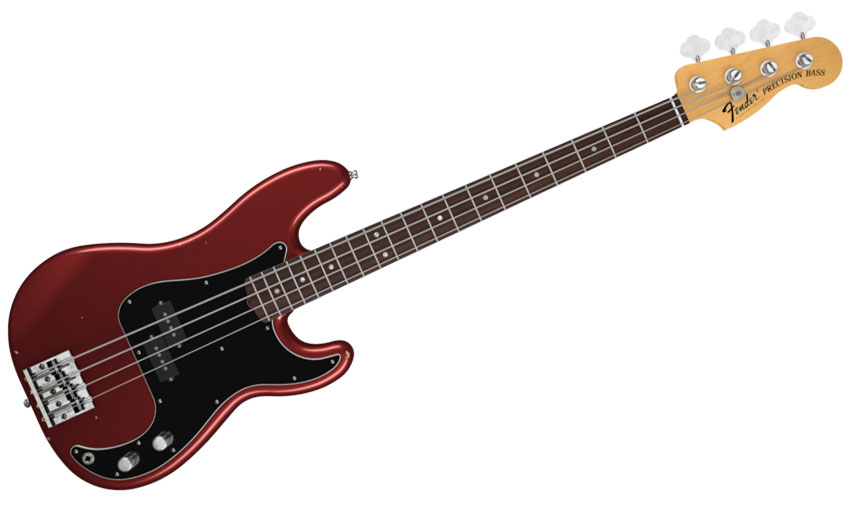
The Fender Nate Mendel signature P-Bass
Are there any plans for a more affordable option, perhaps a Squier model?
"Yeah. I'm not super knowledgeable about different basses and part of that might be because I found this great instrument early on and was just like, 'Alright, this is good. I'm set!' But a friend of mine who's more knowledgeable said, 'Check this out - Fender's got these different factories around they all put out a different price point product. There's this one factory that's putting out less expensive instruments, but they're super high quality.'
"So I talked to the Fender guys about that and said, 'Well, maybe we should produce an instrument like this at this other factory that will have this great quality at a lower price.' So we've been talking about that. We haven't gone into too much detail or planning about it, but it's something I'd like to do, for sure."
"It's honestly got to the point now - and I think this is funny - where things just show up in my rig and I don't even know what they are"
What's in your main touring rig? Do you play your signature model live?
"I don't play the signature model on stage because I think it's weird to play an instrument with your name on it. So I play the original run of P-basses and the other [Swamp Ash P Bass] that I mentioned earlier that contributed to the sound of the signature basses.
"It's honestly got to the point now - and I think this is funny - where things just show up in my rig and I don't even know what they are! My bass tech is amazing and he likes to fiddle around and constantly be working to get the sound as good as possible. I was looking at my rig the other day and there's like a mic pre and equaliser in there. I'm like, 'Why do we have a channel strip in my bass rig!?' It just showed up! The basic elements are pretty simple - I just use the all-tube [BTA 400] Ashdown head and a Fulltone Distortion pedal and that's about it."
Foo Fighters - White Limo. From 2011's Wasting Light, featuring Nate Mendel on roller blades
Wasting Light saw the band come almost full circle and pull back into heavier, rawer territory. Where do you think you'll go next?
"That's a good question. I don't know. We haven't really talked about it. That was a big change and it was fun and I think it made the last album interesting and successful, musically. We had tried on the last couple of albums to stretch a bit and it was a jolt of fresh inspiration, just to say, 'OK, let's just make really direct rock songs again.' So I'm not sure what will happen next. I imagine it will probably be more similar to the last record than maybe the couple before it, but it's hard to say - we haven't started writing yet."
Don't forget to enter our competition to stand a chance of winning a Fender Nate Mendel P Bass worth £886/$1,199!
Matt is a freelance journalist who has spent the last decade interviewing musicians for the likes of Total Guitar, Guitarist, Guitar World, MusicRadar, NME.com, DJ Mag and Electronic Sound. In 2020, he launched CreativeMoney.co.uk, which aims to share the ideas that make creative lifestyles more sustainable. He plays guitar, but should not be allowed near your delay pedals.
“It’s about delivering the most in-demand mods straight from the factory”: Fender hot-rods itself as the Player II Modified Series rolls out the upgrades – and it got IDLES to demo them
“This time it’s all about creativity… Go crazy. Do whatever you wanna do with it”: Budding luthiers, assemble! Harley Benton’s DIY Kit Challenge is now open and there are prizes to be won





